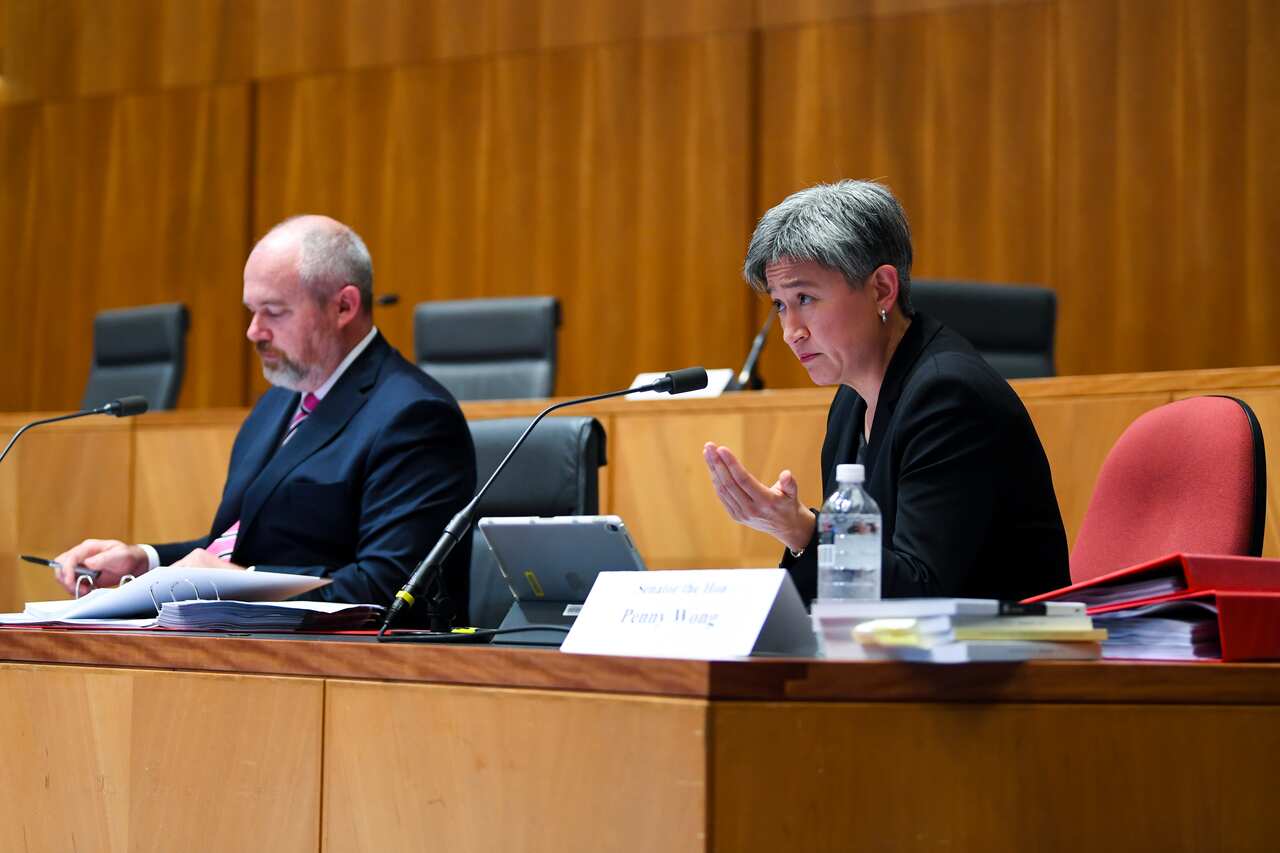Australia’s defiance to join countries around the world in adopting a net zero emissions target by 2050 has caused frustrations to flair in a Senate estimates hearing.
Foreign Minister Marise Payne repeatedly declined to welcome South Korea and Japan's commitment to the net zero emissions goal this week, despite being questioned numerous times by Labor’s foreign affairs spokesperson Penny Wong.
The pressure from the opposition comes amid an increasing number of nations around the world committing to net zero emissions by 2050.
Senator Wong argued Australia is becoming increasingly left behind through its climate change response not signing up to the target.
“The UK, Canada, the European Union, Japan, South Korea. Isn't it the case that the government's failure to commit to net zero by 2050 is leaving Australia increasingly isolated?” Senator Wong said in the committee.
“Is it the government's position that it will or will not set a 2050 emissions target?” The Australian government has resisted international pressure to sign up to the target, arguing it will comply with the terms of the Paris agreement by reaching net zero in the second half of the century.
The Australian government has resisted international pressure to sign up to the target, arguing it will comply with the terms of the Paris agreement by reaching net zero in the second half of the century.

Senator Wong warned Australia's climate change response is becoming increasingly isolated from global counterparts. Source: AAP
Senator Wong repeatedly invited Senator Payne to welcome the 2050 net zero commitments by Japan and South Korea, to which Senator Payne said she “acknowledged” those announcements.
Senator Payne said it was not for Australia to “welcome or not welcome” commitments from other countries to reach the net zero emissions target.
“They are matters for those countries,” she said.
“I’m very happy to acknowledge the decisions made by the governments of Japan and Korea but they’re decisions for them ... we are very focused on our own commitments."
“But you won’t welcome them committing to net zero by 2050?” Senator Wong asked.
“That’s a matter for them,” Senator Payne said in response. Prime Minister Scott Morrison on Wednesday stressed that he would not be dictated to by other government’s climate change goals.
Prime Minister Scott Morrison on Wednesday stressed that he would not be dictated to by other government’s climate change goals.

Senator Payne decline repeated offers to welcome Japan and South Korea's commitment to reach net-zero emissions by 2050. Source: AAP
This followed a call on Tuesday night between British Prime Minister Boris Johnson and Mr Morrison, in which the leaders discussed the need to take "bold action" on climate change through ambitious targets to reach net zero.
Official readouts of their conversation were later released to the media of the two leaders adopting different tones - with the Australian government's summary making no reference to net zero.
During the hearing, Senator Wong appeared frustrated when Senator Payne repeated comments from Mr Morrison that Australia’s climate policy would not be set in “the UK or Brussels or any other part of the world”.
“This is negative globalism rearing its head,” she said. “A Foreign Minister articulating that sort of nationalistic rhetoric - it's embarrassing.”
This week the world’s fifth-largest emitter, Japan, pledged to achieve net-zero carbon emissions by 2050, following China’s commitment to hit carbon neutrality by 2060.
South Korea’s president Moon Jae-in announced his country would pursue the net-zero target by 2050 on Wednesday.
Senator Payne resisted going into detail about about how Australia's long term plan to commit to a net zero target.
But she said the government was committed to taking action on climate change, and intended to set a long-term target in advance of COP-26 - next year’s United Nations Climate Change Conference.
“That’ll be determined by government in due course,” she said.
“The government thinks it's important that we continue to be very clear with the Australian people about how we intend to go about this.”
The federal government has pledged to lower emissions by 26 to 28 per cent below 2005 levels by 2030 as part of the Paris Agreement.
However, DFAT officials once again confirmed at the hearing that Australia remained the only country indicating its intention to use Kyoto carryover credits in order to meet its commitments under the deal.
The committee also heard officials were seeking clarity on the potential of a possible European Union proposal to implement a carbon border adjustment mechanism.
This would mean countries who refuse to take meaningful steps on emissions would face penalties, such as high-emissions exports being hit with an import levy.
Senator Wong asked Senator Payne if she agreed with assertions made by Boris Johnson that acting on climate change was consistent with driving economy growth and jobs creation.
Senator Payne said she would not describe it as such, instead stating that both the UK and Australian governments agreed “achieving emissions reductions must not be at the expense of jobs anywhere".
The Australian government has argued it is committed to a "technology not taxes" approach putting forward its technology investment road map as a means of providing a framework to drive down emissions.
However, its resistance to commit to reaching the target by 2050 has put it out of step with all states and territories who have backed carbon-neutral goals.
The Business Council of Australia, the Australian Industry Group, the National Farmers' Federation and environment and social policy groups have also endorsed a nationwide target to achieve net zero by 2050.



